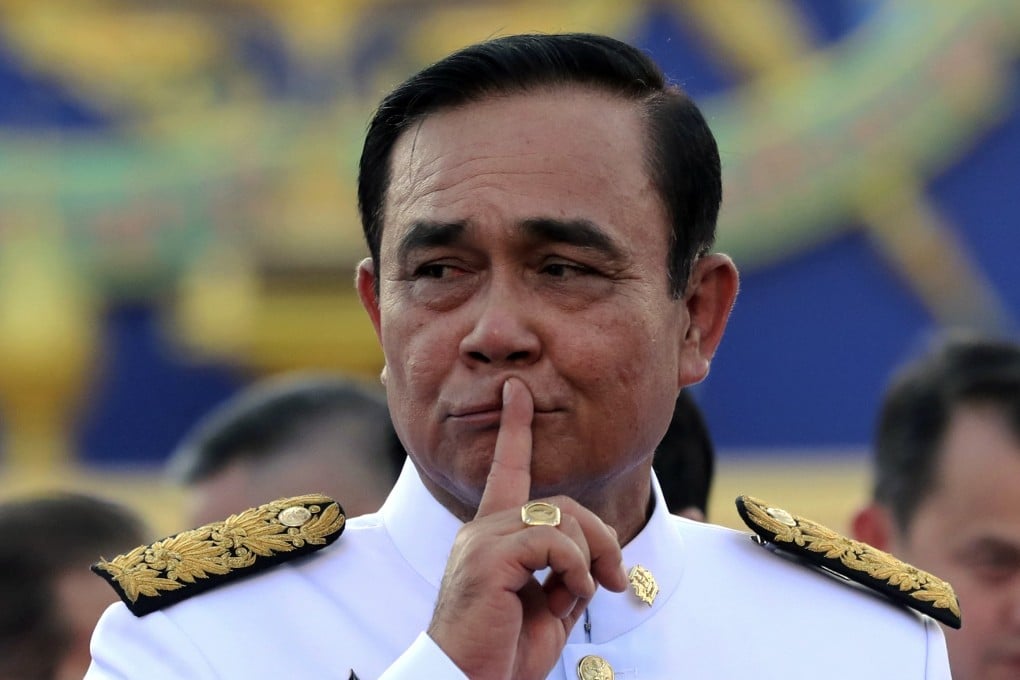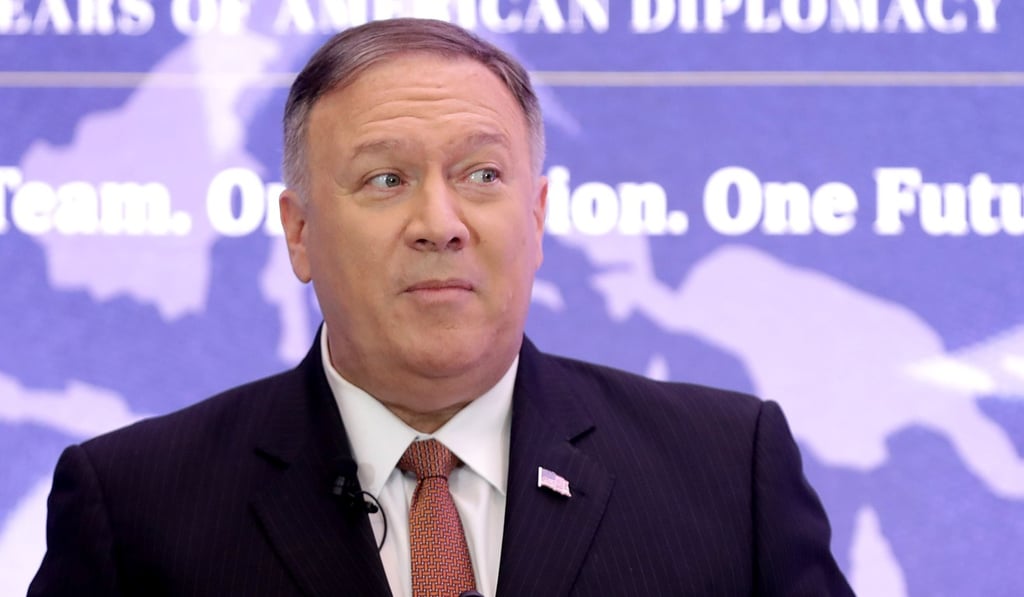Advertisement
Mike Pompeo set for first visit to Thailand as US looks to renew ties despite junta leader Prayuth Chan-ocha retaining grip on power
- Washington downgraded relations with Bangkok after Prayuth’s 2014 coup, which the administration of former president Barack Obama condemned
- But now the ex-general has been democratically installed following March’s disputed elections, has everything been forgiven?
Reading Time:3 minutes
Why you can trust SCMP

US Secretary of State Mike Pompeo will begin his first visit to Thailand on Thursday as part of a week-long tour of the Indo-Pacific that will include stops in Australia and Micronesia.
His visit comes as the country emerges from five years of military rule, with coup leader Prayuth Chan-ocha retaining power after being voted prime minister by his ruling coalition following March’s disputed election. His new cabinet was confirmed after being approved by Thailand’s king earlier this month.

Advertisement
The United States condemned Prayuth’s 2014 coup and subsequently downgraded defence ties, raising questions over whether Washington will be satisfied by Thailand’s return to democracy – especially amid allegations of electoral fraud and a vote that was widely considered to be rigged in the junta’s favour.
But as Bangkok has leaned ever closer to China in the years since the army seized power – with increased arms deals, investments and economic cooperation – the US has expressed readiness to work with Thailand again, and support the country as it assumes the role of chair of the Association of Southeast Asian Nations (Asean) this year.
“The advent of the Trump administration marked a distinct sea change in terms of US relations with Thailand. Gone were US priorities regarding human rights and democracy, hallmarks of President Obama’s foreign policy,” said Paul Chambers, a lecturer and adviser on international affairs at the Centre of Asean Community Studies in Thailand.
Advertisement
Select Voice
Choose your listening speed
Get through articles 2x faster
1.25x
250 WPM
Slow
Average
Fast
1.25x